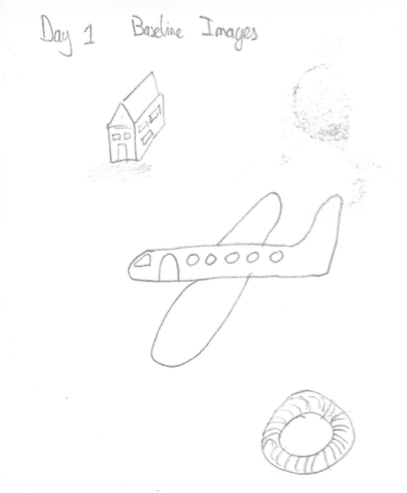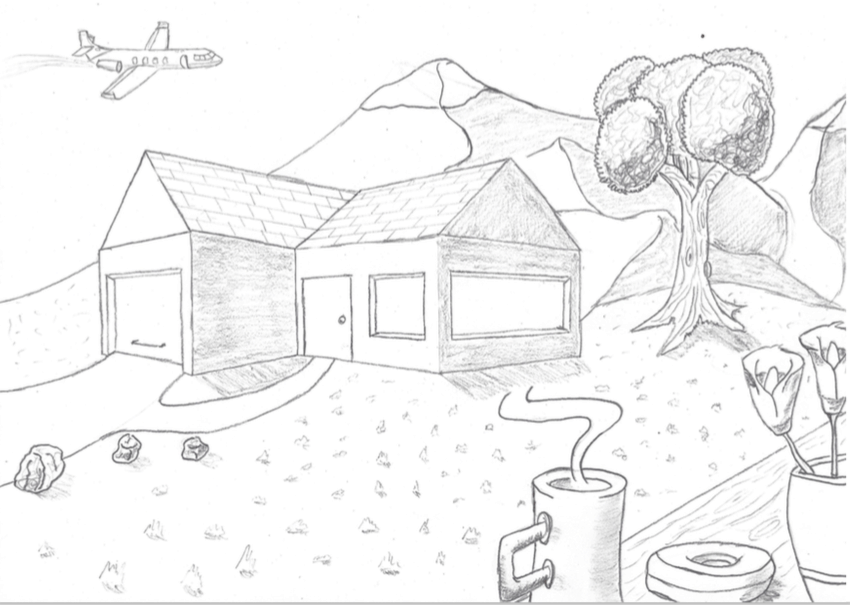“A talent stack is the overall value or sum of an individual’s skills and talents.” (Ben Ford)
Scott Adams (author of Dilbert) hinted at this in an older blog post. Being the best at the world at one single thing is almost impossible. Becoming good (e.g. top 25%) at two things can be more valuable and also far easier. This can be extended further to additional skills. Even going from bad to mediocre in a skill may be extremely beneficial. It’s the combination that matters.
I love learning new things. I love trying out new things. I recently decided to try and learn to draw. At first this was just disappointing. My first efforts were awful. Here’s my first attempt at a plane, a bagel and a house!

Lots of people think you should just stick to what you’re good at. Eg Seth Godin “focus on doing things you are truly good at” or Desmond Courtney “Focus on what you’re good at and forget the rest.” That seemed excellent advice after seeing the first results of my drawing. I really should have stopped the drawing immediately. I’m no artist. I’ll never be. I should stick to development and management tasks.
I stuck with the drawing for a while though. With just 30 days and this book I tried again. Here’s my “take 2” of a plane, bagel and house. (Plus a few extras I learned.)
I’ll never have my work on display in the Louvre. But it was great to get the basic understanding and learn a new skill.
In a more recent post Scott Adams highlighted the benefits of having “a collection of good-but-not-special skills that sum up to something powerful.” The combined result is far more than the sum of the parts.
I think you should always double down and try and become truly excellent at a few skills. But this shows it’s also worth investing time in other non related skills. Good enough with the right combination can be extremely powerful.
The questions you need to answer are:
- What are the specialist core skills that you want to truly excel at?
- What other skill would it be worth investing in in order to make your skill stack extra valuable?
- Now you have the list what are you going to do to learn them?
If you’re not sure what skills to look into next then you may want to look at this list from Jason Calacanis.
30 hours invested in drawing has made a massive difference to me. It makes running workshops and meetings a lot easier. I can jump up and draw things on a white board. I can sketch out presentation outlines more easily. It has given me far more confidence. It was definitely a good investment for my talent stack!

Leave a Reply